- Home
- Philip Pullman
Two Crafty Criminals! Page 3
Two Crafty Criminals! Read online
Page 3
“I heard,” he said, “from a cousin of mine who’s a policeman, that they make a plaster-of-paris mold off a real new coin, and melt some cheap metal and pour it in. Then, to make it look like silver, they get a bath of spirits of salt and cyanide, ’cause that’s got silver in it, and dip the coins in that and pass an electric current through with a wire from a battery. That makes a bit of silver stick to the coin. There’s a craft in it, see.”
Thunderbolt could hardly hear; there was a kind of roaring in his ears. Those electric batteries in the cellar … that wire …
He took the fragrant, steaming pie when it was ready and hurried across the road towards home. Then he slowed down. He hurried again; he came to a halt; he didn’t know whether to run or stand still.
Finally, heavily, he dragged his steps in through the front door. There was a glow from the area window, like yesterday. And that faint sharp smell: Was that spirits of salt? What did they smell like? What were spirits of salt?
Thunderbolt took the pie into the kitchen and lit the lamp.
Then he thought: I must go and see what he’s doing.
He went out into the scullery at the back, where there was a dark little staircase that led down.
And when he got to the bottom of the stairs, he heard voices. Pa was talking to someone.
“I should take ’em up west,” he was saying. “Try Oxford Street. Lambeth’s no good anymore. Or you could try up Whitley’s in Queensway …”
The other voice said something, and then the outer door closed. Then there were the sounds of tools being put away, and a swishing sound as his father swept the floor, whistling heartlessly. Thunderbolt crept up the stairs again and washed his hands under the pump in the yard, and splashed some water on his face, too, in case his eyes were red.
He stoked the range and put the pie on the table, but that was as far as he got towards making the tea, because just then, as his father came along the hall, there was a loud banging at the front door.
Thunderbolt’s heart leapt with fear. He heard Pa’s footsteps halt and then turn towards the door; he heard the handle turn; he heard a loud official voice say:
“Frederick William Dobney?”
“Yus, that’s me,” said Pa mildly.
“Frederick William Dobney, I am arresting you on the charge of—”
“NO!”
Thunderbolt flung the kitchen door open and hurled himself down the hall. There was a fat policeman at the door, with a thin one beside him; and there was Pa, looking baffled. The thin policeman made a grab at Thunderbolt before he got to Pa, and held him back. He was too strong. As hard as Thunderbolt struggled, he couldn’t break free.
“Pa! Pa!” he shouted desperately, but the other policeman had the handcuffs on his father already, and Pa couldn’t move.
“Let me talk to my boy!” Pa was saying, but the fat policeman wouldn’t, so Pa shouted, “Let go! Let me talk to him! You can’t take me away like this—what’s he going to do? Sam! Sammy! Don’t …”
But Thunderbolt didn’t hear any more, because the policeman was bundling Pa into a closed wagon and the driver was shaking the reins. Thunderbolt watched with helpless horror as the police wagon trundled away, taking his father with it.
Then there came a great roaring Irish voice from behind, and the clatter of a dozen pairs of feet on the stairs.
“What the devil are ye holding the boy for, ye whey-faced beanstick? Let him go this minute, or I’ll take yer helmet and ram it up yer nose!”
Mrs. Malone bore down on the policeman like a force of nature. Lightning seemed to play around her head. The policeman took a deep breath to try and speak in his defense, and at the same moment Thunderbolt twisted out of his grasp and hurled himself down the steps into the road, and away.
“Thunderbolt?”
Bridie’s head looked up through the trapdoor. She called again, softly, and held the little candle lantern higher.
“Ah, there ye are …”
He lay curled up in the furthest corner. His eyes were closed. She clambered in and shut the trap behind her.
“Hey! Wake up! Look, I’ve brought yer pie. Ye must be famished.”
She set the lantern down on an upturned orange box and unfolded the dirty cloth she’d carried the pie in. Thunderbolt was still pretending to be asleep, and shivering with cold, the poor devil, she thought.
She nudged him with her foot.
“Hey! Thunderbolt! It’s only me. The coppers have all gone. Wake up, ye old fool.”
Thunderbolt yawned and pretended to wake up elaborately. He fumbled for his glasses and put them on before opening his eyes.
“Oh. Wotcher, Bridie …”
“I brought yer pie.”
“That was for Pa’s tea.”
“They’ll give him some nosh where he’s gone. Eat up or I will.”
“Share it, then.”
She cut it in two with her pocketknife and gave him the larger piece.
“What did they nab him for?” she asked.
“Counterfeiting,” he said. In fact, he didn’t say it clearly at all; his voice shook and she could hardly hear him. Then she worked out what he’d said.
“Ye mean coining? They think he’s doing it? Begod! That’s crazy!”
She laughed loudly enough to make Jasper shift his feet down below. Thunderbolt said nothing; he sat looking down, stolidly chewing the pie.
“Listen, Thunderbolt,” she said, shaking his arm, “they’ll have to let yer pa go as soon as they find out he never done it. It’s a mistake! Yer pa’s no snide-pitcher. Anyway, ye can’t stay here. Supposing they lets him out and he goes home and finds ye gone, and the fire’s out and there’s no food or nothing?”
Then it was his turn to shrug. And something in the hopeless, unhappy look of him made her suddenly understand why he’d run away.
“Well, anyway,” she said after a moment, “pile the hay over ye, that’ll keep ye warm. I won’t leave the lantern, ’cause ye’re a clumsy devil at the best of times and ye’d set the place alight. Ye’ve got old Dippy there for company—he’s better than a watchdog, if ye ask me. One squint at him and the boldest murderer’d take to his heels. And ye’ve got half a pie inside ye, so ye won’t starve till breakfast time. Go to sleep now, and I’ll bring ye a can of milk in the morning.”
“You won’t tell anyone I’m here?” he muttered.
“Ye mean Ma? Sure I won’t. If she knew where ye were, she’d have ye out by the ear and upstairs with us lot in half a shake. Ye’re better off out of it. But I’ll tell Benny and the others. This is a gang matter now.”
The next morning was cold and damp. The gang should have been in school, but most of them regarded the School Board as the slow-witted opponent in a delightful game, and played hookey at the slightest opportunity. Bridie intercepted Benny on his way out of his father’s tailor shop.
He was outraged when he heard what had happened. Bridie had to thump him before he’d calm down and listen.
“Will ye stow yer noise! Of course the man’s innocent and someone else is passing the fakes, but Thunderbolt thinks his father’s guilty!”
Benny stopped at once. They were on the corner of Crowquill Walk and Hopton Street, at the edge of Lower Marsh territory, and Crusher Watkins and two of his pals were ambling along schoolwards on the other side of the road. They yelled out some coarse remark, but Benny didn’t even hear it.
“He what?”
“I could tell. ’Cause Mr. Dobney could be the forger, see. He’s got all the right bits and pieces in that basement, and he knows all about metalwork and so on.”
“I don’t believe it,” said Benny. “And nor should Thunderbolt. Let’s go and—”
“There’s no point in saying what he should or shouldn’t believe,” Bridie said impatiently. “Poor feller, he’s only got his pa. He thinks the world of his pa. If he can’t trust him anymore …”
Benny was a passionate, generous boy, and he saw what Bridie meant.
&n
bsp; “Right,” he said. “Right, I’m angry now. We gotta get some justice. We gotta do some detecting.”
Only the previous summer, Benny had done a job for Mr. Sexton Blake, the great detective. It had only been a matter of taking a message to someone and bringing back the reply, but Mr. Blake had given him half a crown and told him he was a sharp lad. For the next two weeks, the gang made life a misery for every adult in the New Cut, detecting like frenzy—until they saw the Texas Cowboy Lasso Artists at the Music Hall, anyway, and took to rope-twirling instead. But that detecting had been kids’ stuff. This was real.
“First off,” said Benny, “we’ll go and see Dippy …”
They tracked him down at the market, where he was buying a sack of chestnuts.
“How’d you get on at the Waxworks? Am I on display yet?” he said.
“Not quite,” said Benny. “Listen, Dippy—you still got that snide sixpence?”
“Yeah. Got it here somewhere …” The old man fumbled in his waistcoat pocket.
“I’ll give yer a ha’penny for it,” said Benny. “This is evidence, this is.”
The old man was pleased to make something out of the deal, and then the costermonger nearby said, “I’ve got one, and all. Want to buy that?”
Before long Benny had two more snide sixpences and a snide shilling, and then he ran out of money to buy them with.
“When they catch the geezer as done ’em,” the costermonger said, “they oughter chop his head orf. Taking money out of people’s mouths! If it was good enough for Charles the First, it’d be good enough for him.”
“We’ll see about that,” said Benny.
Half an hour later, the whole gang was sitting around the orange box in the stable loft. Bridie had brought a can of milk for Thunderbolt, as she’d promised, and Benny contributed a bagel, and Sharky Bob offered a secondhand peppermint humbug, which was so extraordinarily generous that Thunderbolt felt he had to accept.
“Right,” said Benny. “First we got to examine the evidence.”
He hauled out the coins he’d acquired, which had become jumbled up in his pocket with the rest of the debris there: a piece of chalk, a magnet with several nails stuck to it, a box of Lucifer matches, another box containing a peculiar worm which hadn’t moved for several days, a genuine jezail bullet, a bit of mirror with the edges bound with sticky tape for looking around corners with, a badly scratched lens for examining footprints and bloodstains and lighting fires, and a ragged handkerchief the color of mud.
He laid the coins out in a row—all shiny, all extremely real-looking, and each of them somewhere marked with a tooth bite, showing that they were made of soft metal and not proper silver.
“The first clue,” he said, “is that they all come from round here. From Dippy and the market, mostly.”
“And I got some from the butcher,” said Thunderbolt. He said it without thinking, and then realized that he might be incriminating his father, but it was too late. “He told me about Stamper Billings.”
“Who?” said Bridie.
“He was a snide-pitcher,” said Thunderbolt. “He lived round the New Cut a long time ago.”
“His stuff might be around somewhere still,” said Benny. “His tools and that. We oughter find out where he lived. And then we oughter find out where these uns are being put in circulation. We know there’s a lot round here, but is there any round Lower Marsh? Or further off, like the Elephant and Castle or Lambeth Walk? ’Cause they might not be coming from here at all. So what we gotta do is spread out all round Lambeth and find out where there’s been snide coins uttered. Only don’t say ‘uttered.’ There’s no point using words if you have to explain what they mean each time you say ’em. Just find out how far it goes, and then come back and we’ll work out where the center of it all is.”
“Then what?” said Bridie.
“Then we’ll know, of course! And we’ll be able to clear Thunderbolt’s pa.”
Thunderbolt had become very red. He looked down at the dusty floor and poked a wisp of straw through a crack in the boards.
“Right,” said Bridie. “We’ll do that. Me and Sharky’ll go down the Elephant.”
“I likes elephant,” said Sharky Bob.
“You ain’t never ate an elephant!” said Bridie.
“I bet he could,” said Benny. “And we’ll get the rest of the gang to help, and all. We’ll get the Peretti twins and—”
“No!” said Thunderbolt desperately.
Bridie shook her head, and Benny said, “No, maybe not. So you and Sharky’s going down the Elephant, and I’ll do up Waterloo. And Thunderbolt can do round Lime Tree Walk, and we’ll all meet back here at four o’clock …”
He and Bridie and Sharky Bob swarmed down the ladder and hurried off in their different directions. Thunderbolt went more slowly. He was reluctant to go into the street, because he felt that everyone who looked at him would know that he was the son of a felon. And such a mean felony! If it had been a grand, swashbuckling felony, like piracy on the high seas, it wouldn’t have been so bad. But counterfeiting sixpences was a low, sneaking, sniveling sort of crime, and it only hurt poor people, too. Thunderbolt felt bleak with misery.
And when he tried to stop thinking about Pa, the only other thing that came to mind was his lump of stolen lead, and that only made him imagine that every policeman he saw was after him personally. The lump of lead expanded in his mind to the size of the Rock of Gibraltar, and it was all covered in flags and posters saying “Thunderbolt did it! This way! Clayton Terrace, Number Fifteen! The criminal Dobneys again!”
So he did his detecting glumly, and when he met the others back in the New Cut as the lamps were being lit, he felt entirely worthless.
But Bridie was carrying a couple of bags of Dippy’s chestnuts, and Benny had a big stone jug of ginger beer, and Sharky Bob was clutching a bag of apples, and they all looked so full of glee that he began to cheer up. Seeing Benny eating one of the apples, he began to feel hungry too.
But before he could say anything, Benny suddenly pointed down the street and said, “Wuph! Thumwhun’s thtealing Dhippy!”
Wiping apple off his glasses, Thunderbolt looked where Benny was pointing. Someone—a little skinny man in a ratcatcher’s cap—was sneaking out of the stable-yard gate, and trying unsuccessfully to conceal what he was carrying: the waxwork dummy, Benny’s masterpiece, the portrait of Dippy Hitchcock.
“Oi! Stop thief! Come back!”
The little man looked over his shoulder in alarm. Seeing four determined children charging towards him, he gave a yelp and tried to run. But the dummy’s dangling legs got between his feet and tripped him up, and as he rolled over on the muddy pavement, squealing with panic, the dummy’s flailing arms wrapped themselves around him, so that it looked as if he were being attacked by a monster from a nightmare.
Passersby stopped to gape. Hearing the shouts, people looked across from the market stalls, came to the door of the Rose and Crown, opened windows and stared. A group of idle layabout dogs appeared from nowhere to surround the thief and the dummy, barking with joy, just like children round a fight in the playground. An elderly cab horse shied nervously.
The little man struggled free just as the gang arrived, scrambled to his feet, and fled. Benny was all for chasing him and making a citizen’s arrest, but Bridie held him back.
“Never mind him,” she said, “we still got the dummy.”
“Not all of it,” said Thunderbolt, lifting it up out of reach of the dogs. At some stage its nose had come off, and a terrier called Ron was eating it gleefully. When they realized what he’d got, the other dogs wanted some too, and Ron took the nose and fled; and less than a minute after it had started, all the excitement was over. Carrying the dummy between them, the gang went back into the stable yard, indignant at the dishonesty of adults.
“Shockin’,” said Bridie. “I’m really disturbed.”
“Oughter hang him, at least,” said Benny. “You can’t trust anyone.”
He tenderly removed the dummy’s head, smoothing over the edges where the nose had come off, shoving the blood alley back into its socket, removing bits of grit and mud from the cheeks.
“He musta been one of these art thieves,” he said. “They pinch pictures and statues and fancy china and stuff. Then they flog it to museums or rich Americans. Bound to be an art thief.”
Bridie was last in. She was watching the curious behavior of a foreign-looking man who’d seen the escape of the thief and the rescue of the dummy. He was peering closely at the ground where the thief had fallen over, and bending down to pick up something too small to see before putting it in an envelope and tucking it securely in his waistcoat pocket.
Hmm, she thought, and followed the others in.
“He looks better without his hooter,” she said, examining the damage. “More friendly.”
“What are you talking about?” said Benny. “He looks horrible. He looks as if he’s been attacked by a lion. How’d you like it if your nose was et off?”
“It wasn’t a lion anyway, it was only old Ron from the fish shop,” said Thunderbolt. “He don’t look too bad. Dig a lump out the back of his neck to make another schnozz and cover the hole with his cap. He’s just a bit dusty, that’s all.”
Slightly repaired, the dummy was propped up in his usual spot near the skylight, and the gang settled down around the orange box. The candle lantern glowed on the apples and the chestnuts as they were divided and devoured, as the ginger beer went the rounds and was emptied, and then Bridie gave Sharky a giant humbug to keep him quiet and they began to report.
“I went up Blackfriars Bridge way and across the river,” Thunderbolt said. “There’s hardly any over the other side, but lots on this. And then I went down Lime Tree Walk and I got talking to this old beggarman, and he told me about snide-pitching. It’s not making the coins that’s hard—it’s passing them out. He said you need lots of people, ’cause one bloke can’t go into a shop or a pub with a bag full of new coins, it’d look suspicious. So they buy the tanners and shillings for a penny each, and go off and pass ’em out in lots of different places. He gave me a tanner what he’d been given. He thought there was some snide-pitching going on, ’cause normally he only gets ha’pence and farthings.”

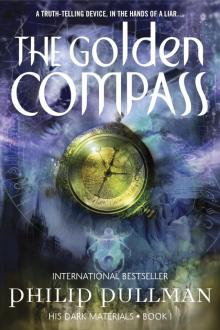 The Golden Compass
The Golden Compass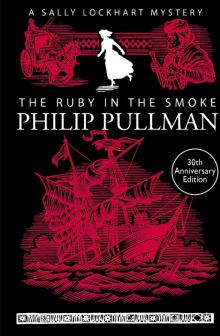 The Ruby in the Smoke
The Ruby in the Smoke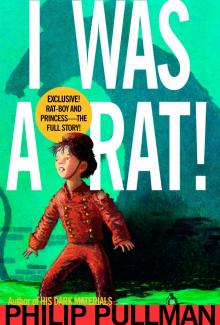 I Was a Rat!
I Was a Rat!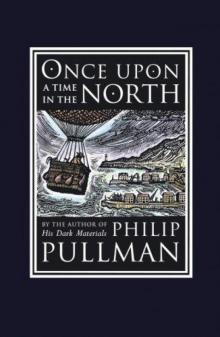 Once Upon a Time in the North
Once Upon a Time in the North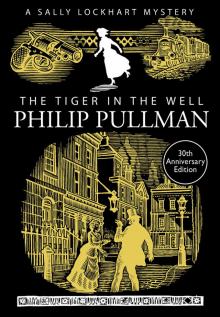 The Tiger in the Well
The Tiger in the Well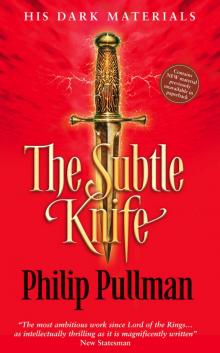 The Subtle Knife
The Subtle Knife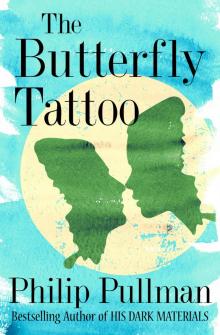 The Butterfly Tattoo
The Butterfly Tattoo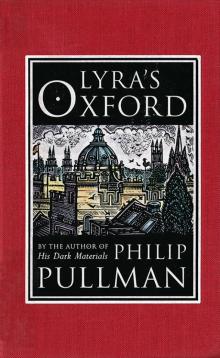 Lyra's Oxford
Lyra's Oxford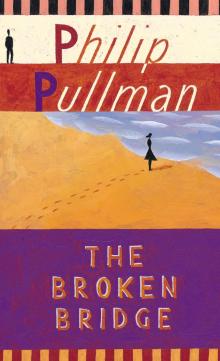 The Broken Bridge
The Broken Bridge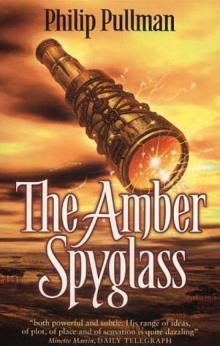 The Amber Spyglass
The Amber Spyglass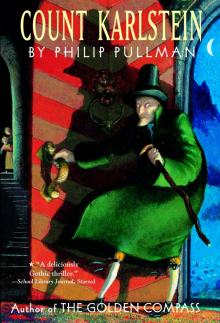 Count Karlstein
Count Karlstein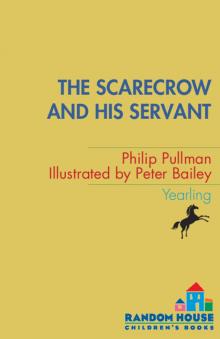 The Scarecrow and His Servant
The Scarecrow and His Servant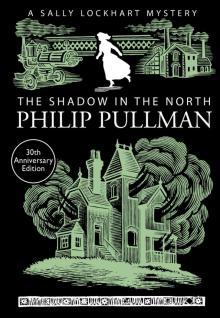 The Shadow in the North
The Shadow in the North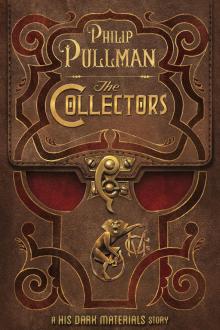 The Collectors
The Collectors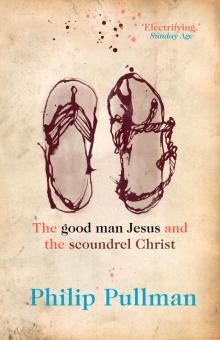 The Good Man Jesus and the Scoundrel Christ
The Good Man Jesus and the Scoundrel Christ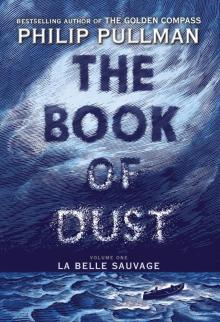 La Belle Sauvage
La Belle Sauvage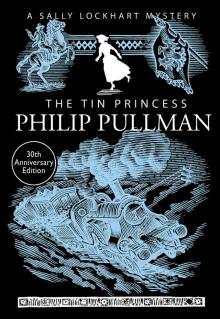 The Tin Princess
The Tin Princess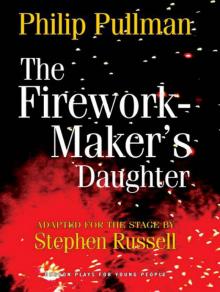 The Firework-Maker's Daughter
The Firework-Maker's Daughter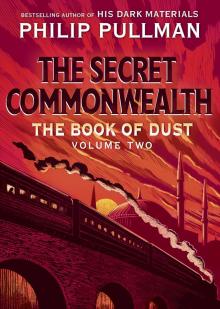 The Book of Dust: The Secret Commonwealth (Book of Dust, Volume 2)
The Book of Dust: The Secret Commonwealth (Book of Dust, Volume 2)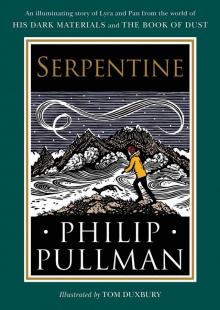 Serpentine
Serpentine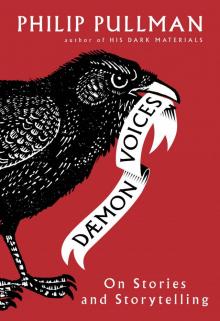 Daemon Voices
Daemon Voices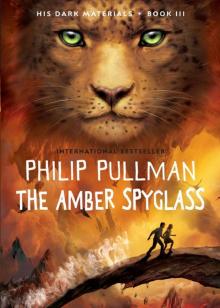 The Amber Spyglass: His Dark Materials
The Amber Spyglass: His Dark Materials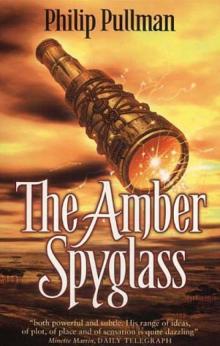 The Amber Spyglass hdm-3
The Amber Spyglass hdm-3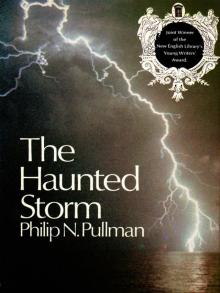 The Haunted Storm
The Haunted Storm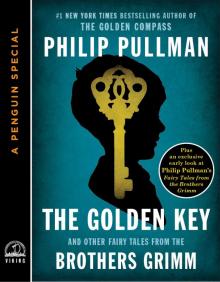 The Golden Key
The Golden Key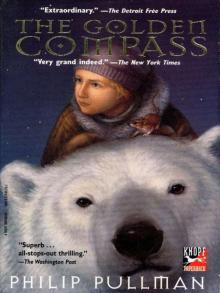 His Dark Materials 01 - The Golden Compass
His Dark Materials 01 - The Golden Compass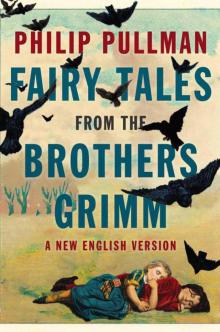 Fairy Tales from the Brothers Grimm: A New English Version
Fairy Tales from the Brothers Grimm: A New English Version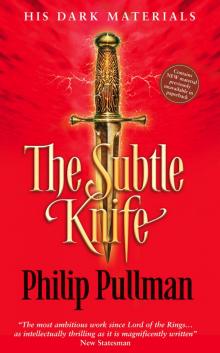 His Dark Materials 02 - The Subtle Knife
His Dark Materials 02 - The Subtle Knife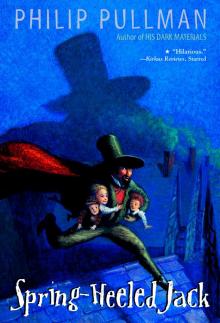 Spring-Heeled Jack
Spring-Heeled Jack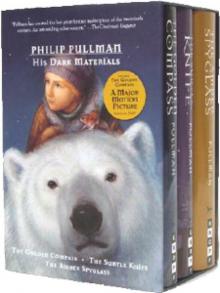 The Golden Compass hdm-1
The Golden Compass hdm-1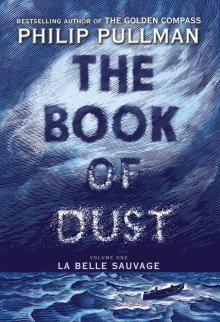 The Book of Dust, Volume 1
The Book of Dust, Volume 1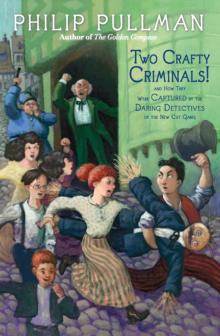 Two Crafty Criminals!
Two Crafty Criminals!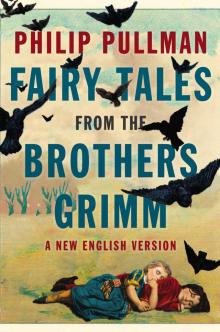 Fairy Tales from the Brothers Grimm
Fairy Tales from the Brothers Grimm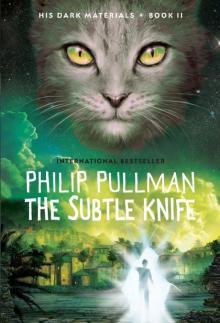 The Subtle Knife: His Dark Materials
The Subtle Knife: His Dark Materials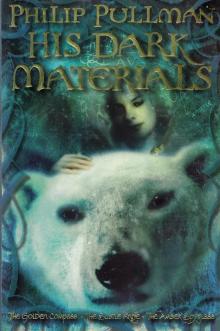 His Dark Materials Omnibus
His Dark Materials Omnibus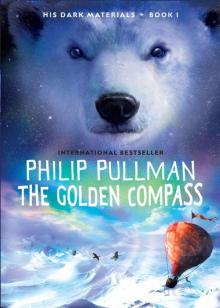 The Golden Compass: His Dark Materials
The Golden Compass: His Dark Materials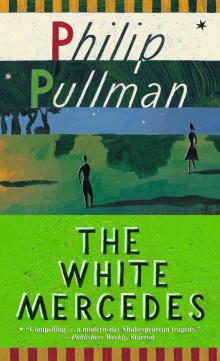 The White Mercedes
The White Mercedes